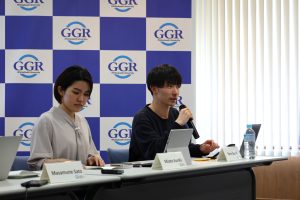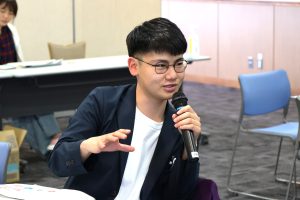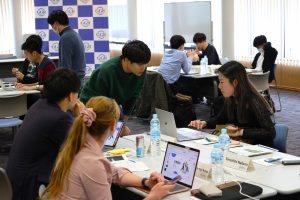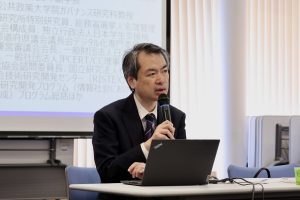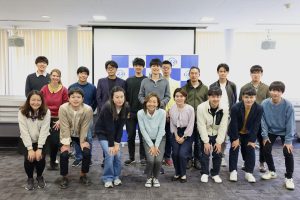On April 22 and 23, the Institute for Global Governance Research (GGR) at Hitotsubashi University held a follow-up session, “Countering Disinformation and Protecting Democracy.” This session was attended by a total of 18 participants, including participants from four thematic groups and research assistants. Based on the analysis of the patterns of spreading disinformation relevant to each group’s theme, a more in-depth discussion was conducted on persona-setting in order to form counter-narratives against such disinformation.
For the Taiwan group, the persona was established based on readership data from the Nihon Keizai Shimbun. The Taiwan group discussed strategies to form an effective counter-narrative, including sending out counter-narratives from a trusted newspaper, given the large number of retweets generated when searching for “Nihon Keizai Shimbun, Taiwan, the unknown face of Taiwan” on Twitter. The Japan-Korea Relations group set up a persona of an internet user with xenophobic ideology, noting that false anti-Korean discourse has been spread within a specific bubble with similar views. However, since the designed persona includes both the senders and the recipients within the bubble, the target audience is too broad, and there was a need to set a more specific persona. The Okinawa group addressed disinformation related to the discourse around the Okinawa gubernatorial election, focusing primarily on the group alleging that Denny Tamaki is a Chinese spy. In terms of persona-setting, the need to change the persona to that of an Okinawan voter, rather than one who disseminates online xenophobic narratives, was noted. Finally, the Vaccine group established a persona of a woman who is vaccine averse, is raising a child, and seems to have an organic orientation. The group decided to create a counter-narrative with a more emotionally oriented persona in response to the comments.
On the second day of the workshop, Professor Harumichi YUASA (Graduate School of Governance Studies, Meiji University) gave a lecture on the current state of efforts to counter disinformation and future challenges. He referred to the examples of the US federal military and State efforts to counter disinformation, and specifically, election intervention and cyber-attacks that pose a danger to the democratic system. In the Q&A session, based on the case of the US federal military, participants discussed the current state of countermeasures against disinformation in Japan.
【Event Report prepared by】
Minhee JEONG (Doctoral Student, Graduate School of Law, Hitotsubashi University)
